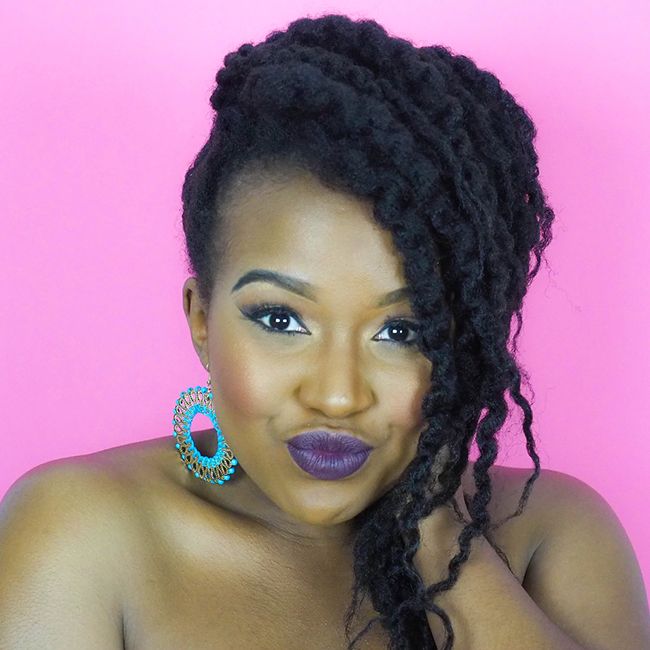
Excessive dryness
If your hair is crackly, (yes crackly like a winter fire”>, then it’s dry! Plain and simple. Our curls and kinks should be supple rather than crunchy. If you’ve done all you think you can possibly do to curb dryness to no avail, you may need to take a step back to see if your hair is over manipulated. If you switch between hairstyles frequently, leave the ends of your hair exposed, or maybe even use direct heat from time to time, your hair may just be buckling under the pressure. You may need to use more low-manipulation protective styles as well as reduce heat use in order to preserve the moisture in your strands.
Buildup
At one point in my regimen, I had a 10-step daily, moisturizing routine. I was using 2-3 products as moisturizing agents and then sealing with a variety of oils and butters. Needless to say, after a while my hair was limp, weighed down, and lifeless. In fact, the excessive buildup of oils caused a gray tint on my hair. Not cute at all! I’ve come learn my natural hair thrives best when I apply fewer products. Everyone’s head of hair is different, but as a general rule of thumb, if your hair is deteriorating in sheen and bounce, it may be time to cut back on excessive use of hair products.
Flaky scalp
If you have small, white flakes on your scalp, this could be a sign of dandruff. Remember, skin sheds naturally from time to time, but if your scalp is flaky over an extended period of time, this is a sign that you need to closely monitor the health of your hair. A flaky scalp could be caused by many factors, including over applying products with chemicals that are astringent or drying. Oftentimes, popular black hair practices, such as greasing the scalp, do more harm than good. Rather than lather excessive amounts of petrolatum on your scalp, dab a light oil, such as olive oil onto your scalp and massage it in. If you have an itchy and flaky scalp, feel free to visit a dermatologist or trichologist, as they are best placed to offer medical and treatment advice.Breakage
Styling your hair in heavy braids or intricate weaves can cause breakage due to tension on the strand. When installing extensions, our hair is pulled and tagged in order to conceal it. If your hair is not properly prepared to withstand the manipulation of being sewn or glued, you may find that your strands snap under the pressure. In addition, when extensions are being removed, hair is more prone to breakage and splitting if handled brashly and improperly maintained underneath the extensions. If the ends of your hair are uneven or if some patches of your hair tend to be longer or shorter than others, this may be a sign that you need a good trim as well as a break from wearing extensions.
Remember our hair is very fragile, so we need to be extra careful not to over manipulate it.
What signs do you look for when assessing your hair’s health?
Tell me in the comments below!
For updates on our latest articles, follow NaturallyCurly on Facebook.
Subscribe to my YouTube channel, Craving Yellow for more curly girl advice.
Like what you see? For more articles like this, sign up for the NaturallyCurly newsletter!







